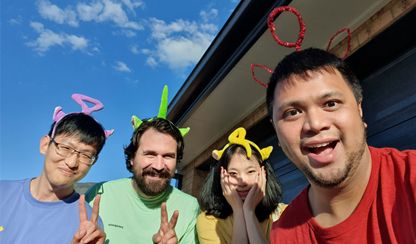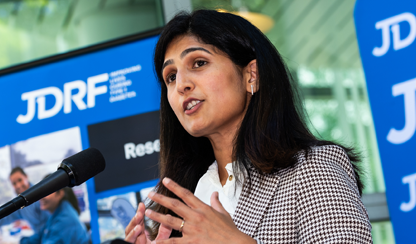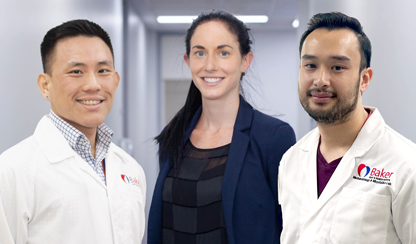06 August 2020
Institute news
Discovery of new cell types that may be key drivers of heart failure
Scientists creating an ‘atlas’ of the cells in the heart have discovered two new cell types that may be the key drivers of heart failure.
“We now have clear targets to aim for to stop heart failure,” says Dr Alex Pinto, Head of the Cardiac Cellular Systems laboratory at the Baker Institute, who is the senior author of the paper published in the leading cardiovascular research journal, Circulation.
“We have only recently begun to understand the diverse range of cells that form the ‘cellular landscape’ of the heart. Using leading-edge sequencing approaches, we can now carefully identify what goes wrong in this landscape to cause disease.”
Dr Pinto and the team he leads — including scientists from Australia and the United States — also found that one of the newly identified cell types is almost twice as abundant in female hearts.
We have known for a long time that women’s and men’s hearts respond differently to stresses such as hypertension, obesity and diabetes, which are common causes of heart failure,” says Dr Pinto.
“Unfortunately, most experimental studies that study heart failure overlook the key differences between male and female hearts.”
“This is very problematic, because one of the fastest growing forms of heart failure is almost twice as likely to occur in women than men.”
“This study shows not only sex differences in heart cell types but also in how the heart responds to stress and develops disease. Hopefully, this work will prompt further consideration of female-specific approaches for researching and treating heart failure.”
Dr Pinto and his team are planning further study of the new cells they have discovered, including in-depth human analyses.
“We want to stop these cell in their tracks and see what the effect is on heart failure” says Dr Pinto.
Stay on top of the latest findings with our newsletter
Subscribe




